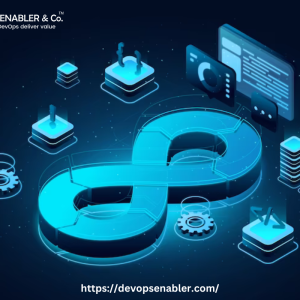The term "legacy applications" often conjures images of outdated systems struggling to keep up with the demands of modern business. These applications, once the backbone of organizations, now present significant challenges in terms of functionality, performance, and security. To address these challenges and unlock new opportunities, businesses are increasingly turning to application modernization as a strategic imperative.
Application modernization encompasses a spectrum of approaches aimed at revitalizing existing software assets to meet current business needs and technological standards. Whether it's enhancing scalability, improving performance, or addressing security concerns, the objectives of modernization are clear: to breathe new life into aging applications and align them with the realities of today's digital economy.
The Imperatives of Application Modernization:
The decision to modernize legacy applications stems from a variety of factors, each driven by the unique circumstances and objectives of the organization. Among the common reasons for embarking on the modernization journey are:
- Enhanced Scalability: Legacy applications often struggle to accommodate the growing demands of users and data. Modernization aims to scale applications seamlessly to meet evolving business requirements.
- Improved Performance: Sluggish response times and system bottlenecks hinder productivity and user satisfaction. Modernization efforts focus on optimizing performance to deliver a responsive and efficient user experience.
- Increase Flexibility and Agility: In today's dynamic business environment, organizations need the agility to respond quickly to changing market conditions and customer expectations. Modernized applications are designed to adapt and evolve alongside the business.
- Enhance User Experience: User expectations continue to rise, necessitating intuitive interfaces and seamless interactions. Modernization efforts prioritize enhancing the user experience to drive engagement and loyalty.
- Optimize Costs: Legacy systems can be expensive to maintain and operate. Modernization initiatives seek to streamline operations, reduce maintenance overheads, and lower total cost of ownership.
- Enable Integration and Interoperability: Modernized applications are designed to seamlessly integrate with other systems and technologies, fostering interoperability and data exchange across the enterprise.
- Address Security and Compliance: Legacy applications may harbor security vulnerabilities that expose organizations to risks. Modernization endeavors strengthen security measures and ensure compliance with industry regulations.
- Futureproofing: By embracing modern technologies and architectures, organizations can future-proof their applications against obsolescence and stay ahead of emerging trends.
- Legacy System Replacement: In some cases, legacy systems reach the end of their lifecycle and need to be replaced with more efficient and adaptable solutions.
- Business Transformation: Application modernization catalyzes broader business transformation initiatives, driving innovation, efficiency, and competitive advantage.
To Uncover Further Insights: https://devopsenabler.com/contact-us
Navigating the Modernization Journey:
Successful application modernization requires a strategic approach tailored to the unique needs and circumstances of each organization. A careful assessment of the current application landscape and alignment with business goals is essential to determine the most appropriate modernization approach and expected outcomes.
At DevOps Enabler & Co., we understand that "One Size Does Not Fit All" when it comes to modernization. We collaborate closely with our clients to develop tailored strategies that leverage modern technologies and best practices to enhance performance, scalability, and user experience.
From re-architecting and leveraging microservices to migrating to the cloud through re-hosting or containerization, organizations have a myriad of options at their disposal. Thorough assessments help organizations understand the current state of their applications, identify areas for improvement, and develop a roadmap for the modernization process.
Furthermore, integrating security practices into the DevOps workflow through DevSecOps ensures that security is built into applications from the outset, fostering collaboration and shared responsibility across development, security, and operations teams.
Application modernization is not merely a technical endeavor; it is a strategic imperative for organizations looking to thrive in the digital age. By transforming legacy applications, businesses can unlock new opportunities, improve operational efficiency, and deliver superior experiences to customers and stakeholders.
With the right approach, organizations can navigate the complexities of modernization and emerge stronger, more resilient, and better equipped to meet the challenges of tomorrow. As technology continues to evolve, the journey of modernization remains ongoing—a continual process of adaptation and innovation in response to changing business landscapes and emerging opportunities.
Contact Information:
- Phone: 080-28473200 / +91 8880 38 18 58
- Email: sales@devopsenabler.com
- Address: DevOps Enabler & Co, 2nd Floor, F86 Building, ITI Limited, Doorvaninagar, Bangalore 560016.






